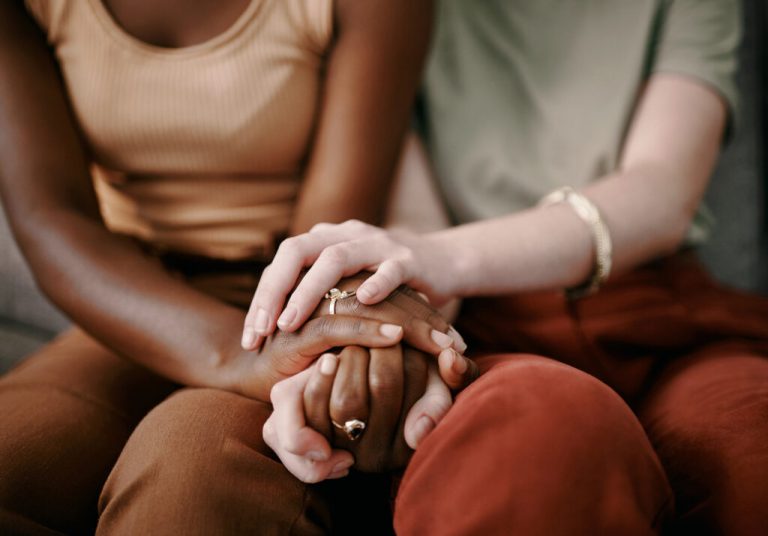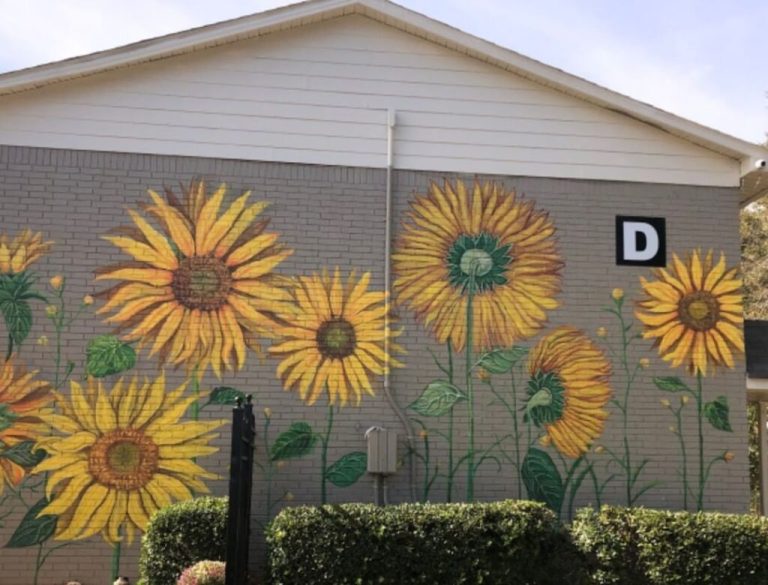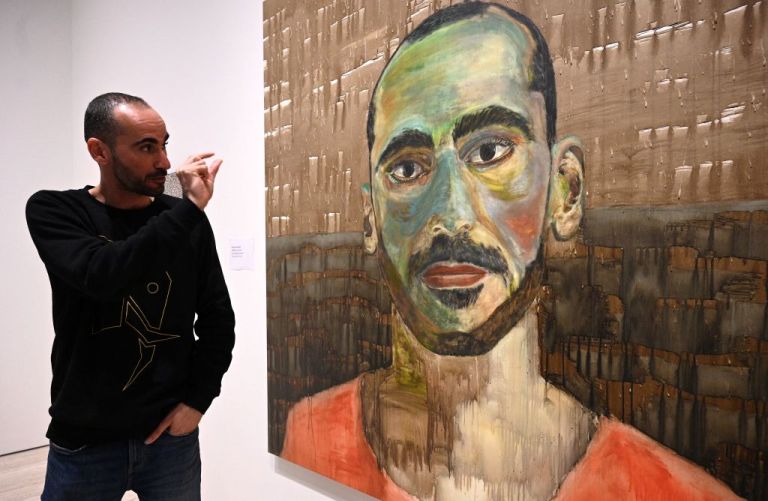For many of us, the holidays are occasions to look forward to: They’re times of togetherness, opportunities to let loose and make memories. But for those who have recently experienced loss, or did so around this time of year in the past, the season can be painful and isolating.
Though we may yearn to support our friends and family who are grieving during the holidays, we don’t always know how best to do so. To help you be there for the people you care about, Nice News spoke to three grief experts who offered constructive advice on the topic.
If you’re grieving and looking for support this holiday season, scroll to the end of this article for a list of helpful resources.
Extend an Open Invitation
Angie Cartwright, a grief counselor and the founder of National Grief Awareness Day, stressed the importance of extending open invitations in a compassionate and judgment-free manner.
She explained that instead of saying things like, “You haven’t been out in a while,” or “I think you would feel better if you came,” simply assure your loved one that there is a place for them if and when they’re ready.
“You invite them,” Cartwright told Nice News, “And I think the thing is, with compassion you say, ‘But if you don’t want to come, that’s OK.’”
She also recommends offering to bring that person some of their favorite holiday foods if they don’t feel up to joining the festivities. “You’ve placed no rules or expectations on them. … Just because they’re not at Christmas doesn’t mean they’re in trouble,” she pointed out.
And Cartwright knows firsthand how difficult the holidays can be for those who are grieving.
“My mom died Nov. 10, 2010, and Thanksgiving was coming right up,” she shared. “And I looked at my husband and I looked at my children and I said, ‘I have to do this my way, guys. I have to grieve my way.’” She sat out that year’s festivities, opting instead to look at pictures, cry, and play music that would connect her to her mom, and the following Thanksgiving she joined her family.
Make Space for Their Feelings

“The biggest thing is to allow people to grieve on holidays,” noted David Kessler, author and founder of Grief.com. He emphasized that one of the best ways to show support is by accepting when someone is in pain and giving them permission to express that pain in the company of others.
Speaking about how he approaches holiday planning with loved ones who have experienced loss, he elaborated: “So many times, we go, ‘Just come for Thanksgiving. We don’t care if you cry through the dinner. … We’ll grab you and sit in the corner with you and give you some love. You don’t have to cheer up for our party.’ And to really allow people to be where they are on the holidays.”
Be Mindful of the Days Leading Up
As with a birthday or the anniversary of a death, the weeks leading up to the holidays may be as difficult as the actual dates. While others are decorating their houses and planning parties, people in grieving may be even more reminded of who and what they’ve lost — not just the person they performed certain rituals with but perhaps the rituals themselves.
So don’t wait to reach out until the week of Thanksgiving, Kessler emphasized, or reserve your invitations solely for the day of. Call at the beginning of the season and continue to check in throughout.
Understand the Difference Between Grief and Mourning
According to Alan Wolfelt, the director of the Center for Loss and Life Transition, a common and unhelpful misconception is that grief and mourning are the same thing. Understanding the difference is imperative for both those who’ve experienced loss and the people who want to support them, he says.
“The key is that by definition, mourning means the shared response to loss,” Wolfelt explained, adding that it’s how people integrate the loss into their lives, begin to heal, and eventually rebuild hope and meaning.
That’s why it’s so important to be physically present for loved ones, not just during the holidays but also throughout the year. “Don’t leave them alone,” Wolfelt stressed. “Then they’re grieving, but they’re not mourning. They need to know you’re there.”
Resources
Grief.com, “Grief & the Holidays”
Vitas Healthcare, “Coping with Grief During the Holidays”
Grief Share Recovery Groups
What’s Your Grief?
Healgrief.org











